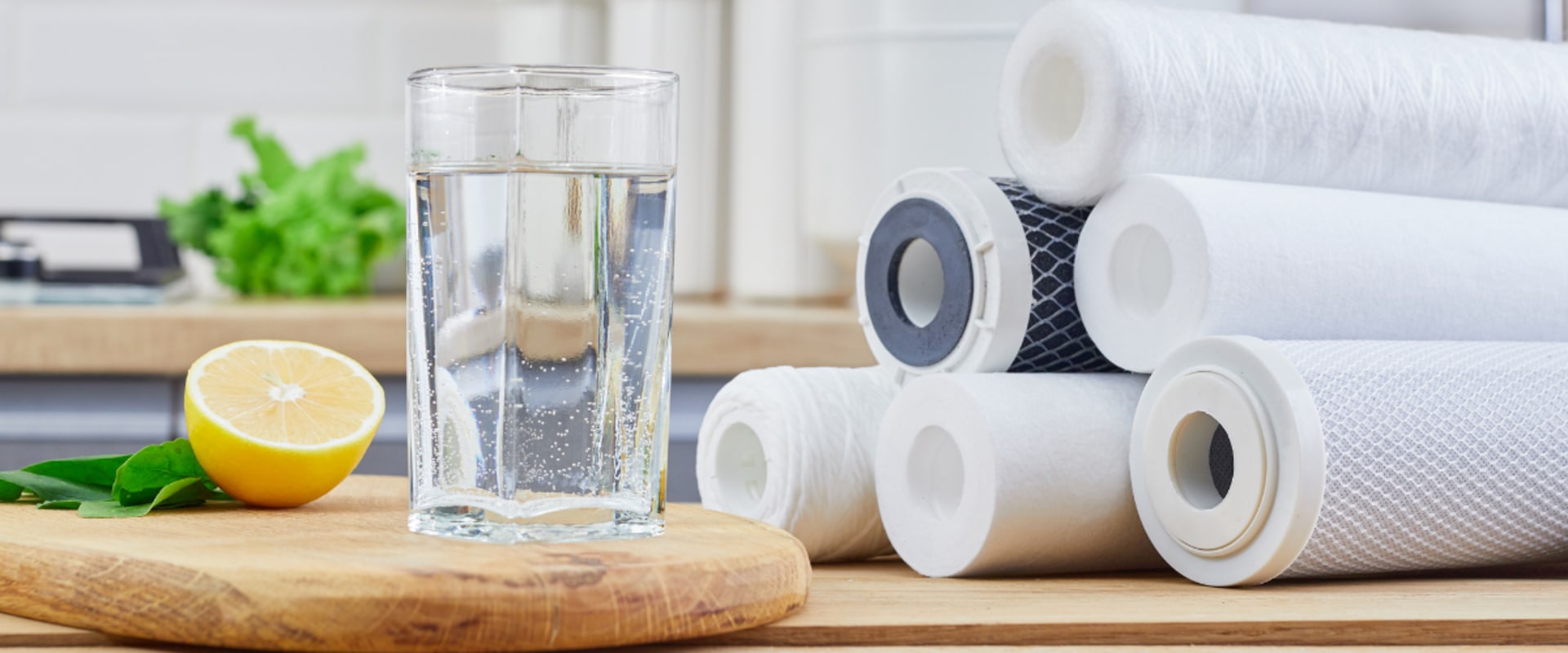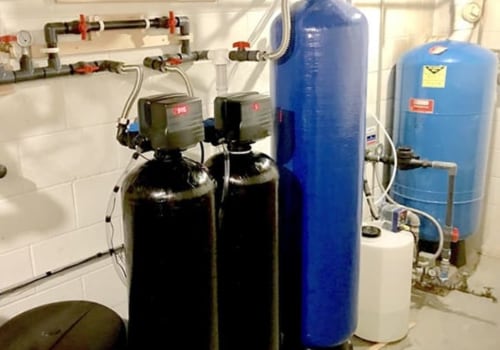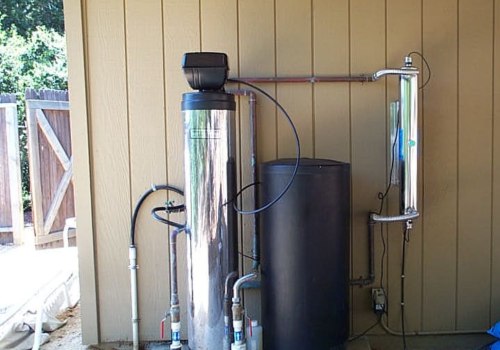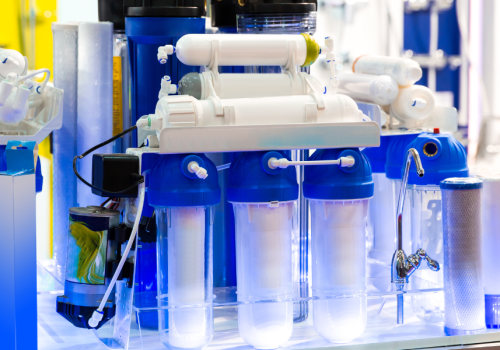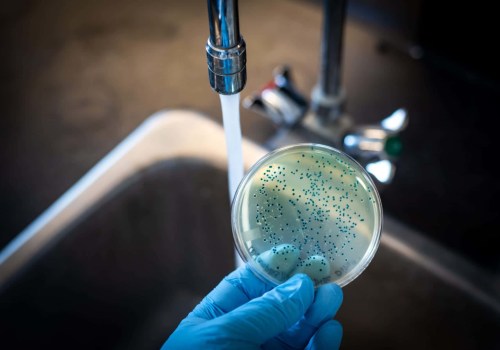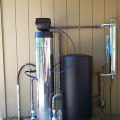Navigating Water Filters: A Comprehensive Guide to Selecting the Perfect Fit
Are you tired of drinking tap water that tastes like chlorine? Are you concerned about the contaminants lurking in your water supply? Well, fear not!
This guide is here to help you navigate the maze of water filters and find the perfect one for your needs. From pitcher filters to UV water purifiers, we've got you covered.
So please sit back, relax, and let's dive into the world of water filtration together. You'll soon be sipping on clean, refreshing H2O like a pro!
Key Takeaways
• Evaluate your needs and budget before deciding on a water filter.
• Consider the pros and cons of whole-house filters.
• Assess the importance of water purification requirements.
• Explore different options and technologies available for water filtration.
Pitcher Filters
If you're looking for an affordable and convenient option, pitcher filters are great. These filters offer several advantages that make them popular among homeowners.
Firstly, pitcher filters are cost-effective compared to other types of water filters on the market. They require minimal upfront investment and have low maintenance costs.
Additionally, pitcher filters are easy to use and do not require any installation or plumbing work. You fill the pitcher with tap water, and it gets filtered as it passes through the cartridge inside.
However, there are a few disadvantages to consider as well. Pitcher filters have limited capacity and can only filter a small amount of water at a time. Moreover, their filtration capabilities may not be as advanced as larger systems like under-sink or whole-house filters.
Overall, if affordability and convenience are your top priorities, pitcher filters can be an excellent choice for improving your drinking water quality at home.
Faucet Filters
Faucet filters are a convenient and easy-to-install option for ensuring clean drinking water in your home. These filters can be attached to your faucet, allowing for quick and hassle-free installation.
Additionally, faucet filters are designed to effectively filter out larger contaminants, such as sediment and rust particles, providing cleaner and healthier water for consumption.
Convenient and Easy to Install
When choosing a water filter, you'll appreciate how convenient and easy some options can be to install. One such option is the faucet filter, which offers a user-friendly setup that anyone can handle. These filters typically come with clear instructions and require minimal tools for installation.
Most models attach directly to your faucet, eliminating the need for complicated plumbing work. The convenience of this setup allows you to have filtered water at your fingertips without any hassle. Whether you're renting an apartment or own your home, these filters offer a practical solution that doesn't require any permanent modifications to your plumbing system.
With their convenient installation and user-friendly setup, faucet filters provide an accessible way to enjoy clean and safe drinking water in no time.
Filters Larger Contaminants
One of the advantages of faucet filters is that they can effectively remove larger contaminants from your water supply. Here's how they work:
1. Filters sediment: Faucet filters are designed with a fine mesh or porous material that traps sediment particles such as sand, dirt, and rust. This helps to improve the clarity and taste of your water.
2. Removes impurities: These filters also effectively remove impurities like chlorine, lead, and other harmful chemicals in tap water. They use activated carbon or other specialized materials to absorb these contaminants.
3. Provides clean drinking water: By filtering out larger contaminants and impurities, faucet filters ensure access to clean and safe drinking water from your tap. This eliminates the need to buy bottled water or use bulky filtration systems.
Faucet filters offer a convenient and cost-effective solution for improving tap water quality by effectively filtering sediment and removing impurities.
Countertop Filters
To choose the right countertop filter for your needs, consider the size and weight of the unit. Countertop filters offer a convenient and efficient way to ensure access to clean and safe drinking water in your home.
These filters are typically compact and lightweight, making them easy to install and move around if needed. One of the key benefits of using a countertop filter is that it can effectively remove common contaminants such as chlorine, lead, sediment, and microorganisms from your tap water.
Additionally, maintenance for countertop filters is relatively simple. Most models require regular cartridge replacements every few months to maintain optimal filtration performance. Cleaning the filter housing periodically will also help prolong its lifespan.
With their user-friendly design and effective filtration capabilities, countertop filters are an excellent choice for improving the quality of your drinking water at home while minimizing maintenance efforts.
Under Sink Filters
Under-sink filters provide an effective solution if you're looking for a more discreet water filtration option. These filters are installed directly beneath your kitchen sink and work quietly to remove impurities from your tap water.
Unlike countertop filters, under-sink filters are tucked away from sight, giving your kitchen a cleaner and more streamlined look.
One of the main benefits of under-sink filters is their ability to filter a larger volume of water compared to countertop models. This means you can enjoy clean and filtered water at all times without requiring frequent refills.
Additionally, under-sink filters often have multiple stages of filtration, ensuring that even the smallest particles and contaminants are removed from your drinking water.
Overall, an under-sink filter is worth considering if you value convenience, efficiency, and aesthetics in your water filtration system.
Reverse Osmosis Systems
When it comes to water filtration, reverse osmosis systems offer a highly effective option for improving the quality of your tap water. These systems use a semipermeable membrane to remove impurities like bacteria, viruses, and chemicals from your water.
One of the main advantages of reverse osmosis systems is their ability to provide clean and safe drinking water by removing up to 99% of contaminants. However, it's essential to consider the cons as well.
Reverse osmosis systems are expensive compared to other filters and waste a significant amount of water during filtration. Additionally, these systems can remove beneficial minerals from your water essential for good health.
When comparing the effectiveness of reverse osmosis systems with other types of filters, it's crucial to evaluate your specific needs and priorities to make an informed decision about which filter is best suited for you and your family.
Whole House Filters
Whole house filters are an excellent option for improving the overall water quality in your home. They are installed at the main water line, ensuring every faucet and appliance receives filtered water.
Here are some key points to consider when comparing whole-house filters to under-sink filters:
1. Coverage: Whole house filters provide filtration for all water sources in your home, including showers, toilets, and washing machines. Under-sink filters only filter the water at specific faucets.
2. Convenience: With a whole house filter, you don't need to worry about installing multiple filters or replacing cartridges regularly. It provides a centralized solution that requires less maintenance.
3. Cost: While whole-house filters may have a higher upfront cost than under-sink filters, they offer long-term savings by eliminating the need for individual filters throughout your home.
4. Efficiency: Whole house filters are designed to handle high flow rates and large volumes of water, making them suitable for larger households or homes with multiple bathrooms.
When considering the pros and cons of whole-house filters, evaluating your specific needs and budget is essential before deciding.
UV Water Purifiers
Considering your budget and water purification needs, UV water purifiers can be reliable for ensuring clean and safe drinking water in your home.
UV water purifiers use ultraviolet light to kill bacteria, viruses, and other harmful microorganisms in the water.
One of the main benefits of UV water purification is that it does not require chemicals or additives, making it a chemical-free solution. It also does not alter the water's taste or odor, unlike other filters.
UV purification is highly effective at removing pathogens from the water, with a kill rate of up to 99.99%. However, there are some limitations to consider. UV cleaners do not remove sediment or heavy metals from the water, requiring continuous electricity.
Overall, if you prioritize chemical-free purification and want an efficient way to eliminate harmful microorganisms from your drinking water, a UV water purifier could be a suitable choice.
Frequently Asked Questions
How often should I replace the filter in a pitcher filter?
Replace the filter in your pitcher filter every 2-3 months to ensure proper filtration. Signs of a worn-out filter include decreased water flow and an unpleasant taste or odor. Regular filter maintenance is essential for optimal performance.
Can a faucet filter be used with any faucet?
Yes, a faucet filter can be used with any faucet. It is designed to fit standard faucets and provides an alternative to pitcher filters. Ensure compatibility by checking the product specifications before purchasing.
Are countertop filters portable and easy to install?
Countertop filters are portable and easy to install. They can be moved around your kitchen as needed. Installation typically involves connecting the filter to your faucet using a diverter valve or adapter.
What is the average lifespan of an under-sink filter?
The average lifespan of an under-sink filter is typically around six months, depending on usage and water quality. Replacement frequency may vary, but it's essential to regularly change the filter for optimal performance and clean drinking water.
Is it necessary to hire a professional to install a whole-house filter?
DIY installation has benefits like cost savings and flexibility for whole-house filters. However, hiring a professional ensures proper installation and reduces the risk of mistakes. Consider your skills and confidence before making a decision.
Earthwise Water Filters Phoenix
922 N Colorado Street, Gilbert AZ 85233
(602) 878-6160
